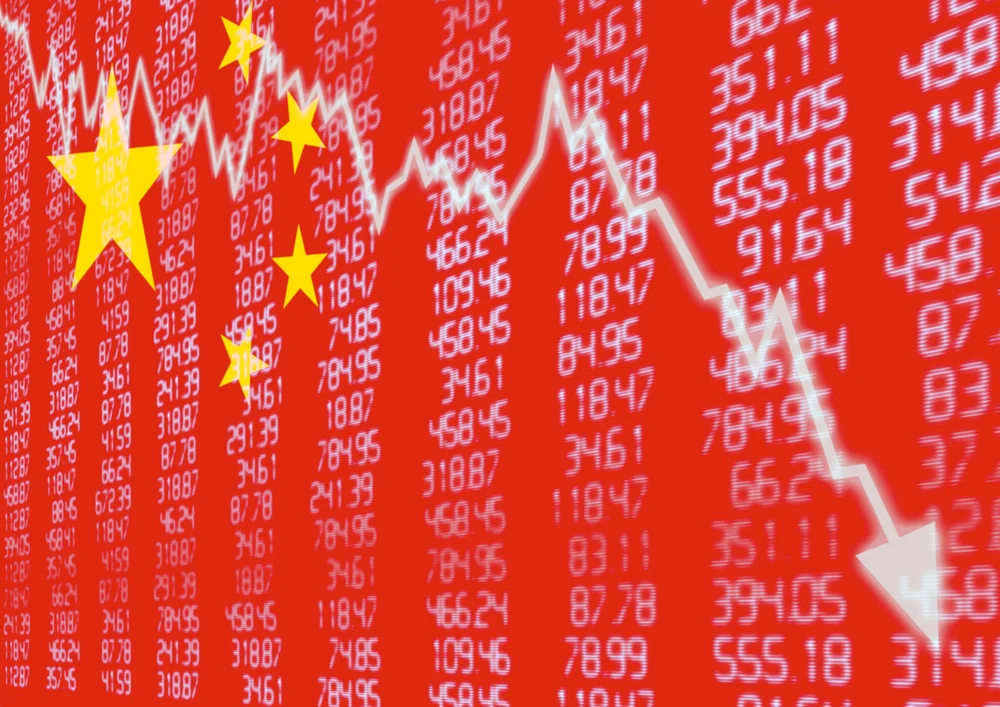Negative sentiments trigger 30years FDI low for China
China is in a soup and its foreign direct investment (FDI) has hit rock bottom since last 30 years. There are multiple reasons that lead to this FDI slump, prominent being Beijing’sconstant tussle with countries such as the US, Japan, Taiwan, and India, and its deplorable post-Covid situation. Moreover, China has been accused of spying resulting in strict sanctions from the US and some other factors such as failure in addressing issues like rising labour cost, internal property crisis, and toughened internal sanctions on major global players operating from China.
The foreign businesses investing in China collaboratively sank to its lowest in 2023 since the early 1990s, this happened at a time when Beijing is struggling hard to revive its economy. According to the State Administration of Foreign Exchange (SAFE) report released recently the numbers represent a sorry state of affairs with China’s direct investment liabilities in its balance of payments rose by $33 billion last year, a further low of 82% compared to 2022. This, on records, is the lowest level of calculated fresh FDI rolling into the country, since the year 1993.
SAFE’s numbers emphasizes the impact of COVID-19 lockdowns and weak recovery attempts made by Beijing in last year. The FDI in third quarter of 2023 was at its lowest for the first time since 1998. Although, there was a slight recovery in the final quarter of 2023 thanks to the inflow of S$17.5 billion in new money but it still could not match the inflow coming in at the same period in 2022.
SAFE’s report forms the basis of economists who predicted weakening profits for overseas companies doing business in China and reduction in their scale of operations, most importantly, triggering a small exodus of these companies who are looking to move their manufacturing units in some other countries.The National Bureau of Statistics data has claimed that profits of foreign industrial firms in China has dropped to 6.7 percent in 2023compared to the year 2022.
In a previous report by the Chinese Ministry of Commerce the fresh foreign direct investment into China was at its lowest in last three years in 2023. The ministry’s statistics are devoid of any earnings based on existing foreign firms and are in comparison lesser volatile than the SAFE figures.
Economists feel that the trend of foreign companies pulling their money out China is the result of ongoing geopolitical tensions, with Taiwan, the US and India majorly, and also because there are other competitive nations that are offering higher interest rates to lure top-notch companies out of Beijing.
After the United States declaredheightened sanctions on China most of the multinational companies are looking to keep their cash outside China. While the advanced economies are raising their interest rates, Beijing has been cutting them to stimulate the economy. A survey done on the Japanese firms in China showed that most of those companies had reduced investment or literally stopped it last year and are focused on keeping a low profile this year amid negative outlook Beijing has garnered globally. To add to the woes, theChinese regime is not doing much to keep the outgoing companies interested after the pandemic, and experts feel there is a strong need to redraft FDI policies.
According to a German Economic Institute report based on data from the Bundesbank, there are few bright spots, such direct investment into China by German companies had reached a record of nearly €12 billion (US$13 billion) last year.While the European Union is scrutinising China for security concerns the Chinese direct investment has shown signs of revival. Germany’s investment in China has expanded to 10.3 percent last year,an anomaly since 2014.
Foreign investment in China is important to stabilize the economy and establish a decorum of sorts within Chinese firms. This will help promote best practices in business trade at international level and enhance governance within the country. Finally, higher investment will help create jobs internally and boost productive growth.













